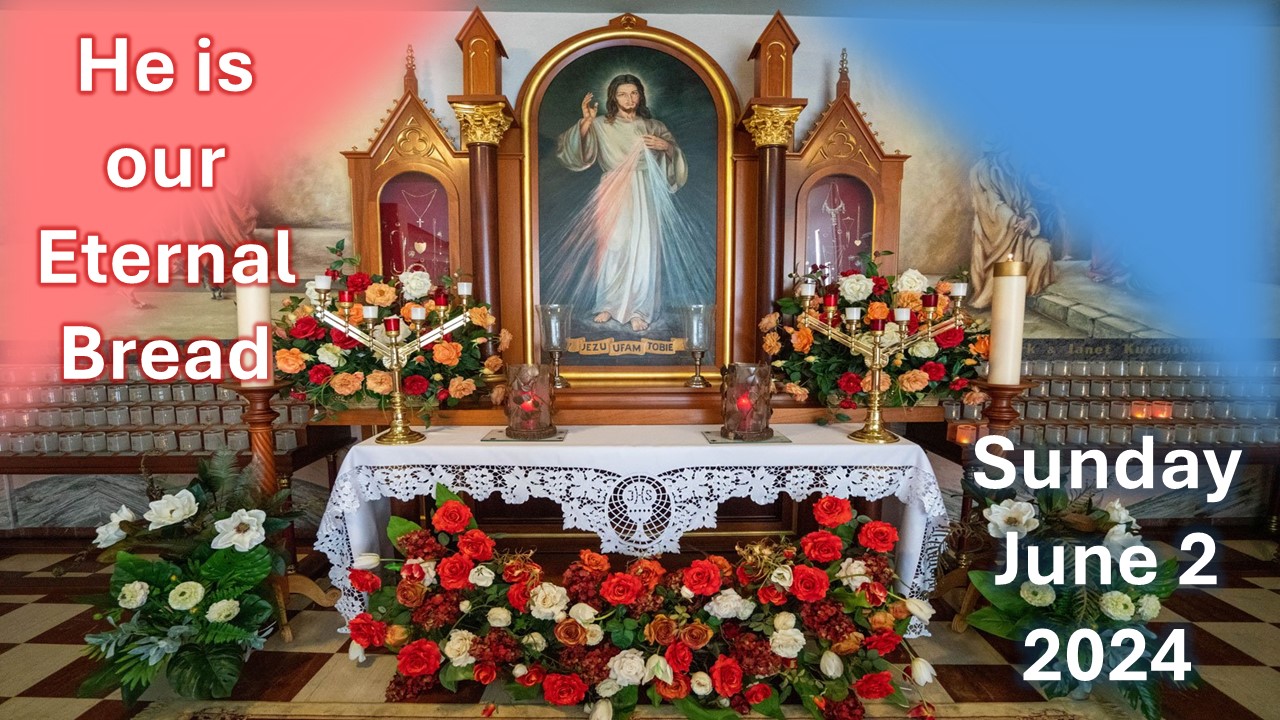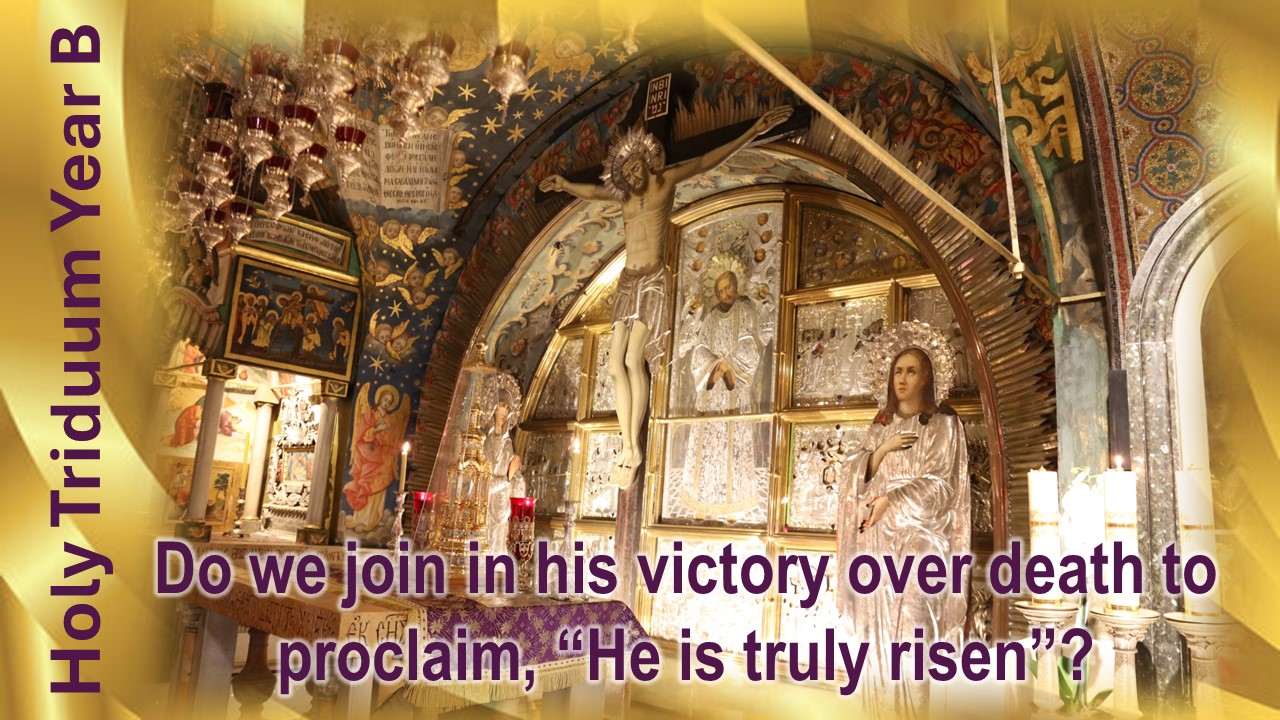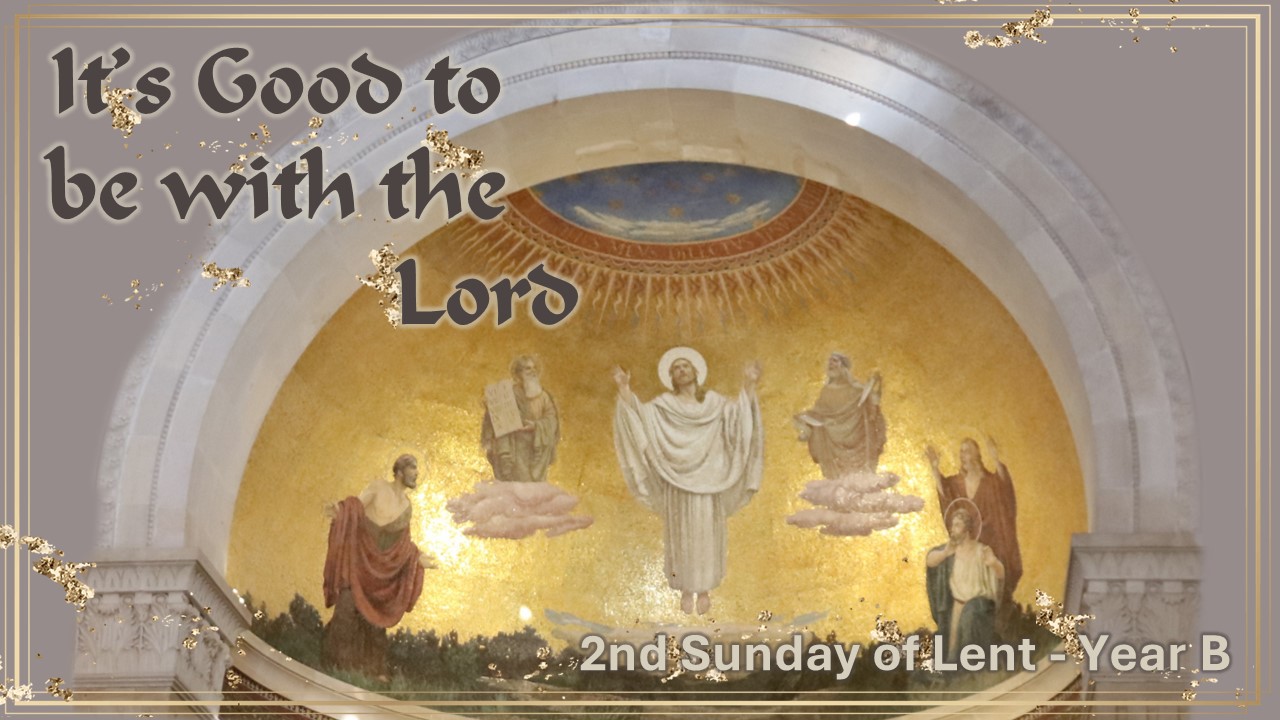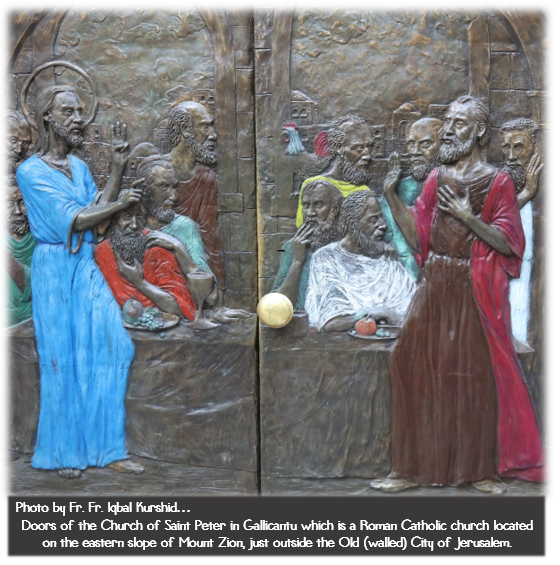
Solemnity of Corpus Christi, Year B ~ JUNE 2, 2024
HE IS OUR ETERNAL BREAD
After Easter Sunday we celebrate feasts of Divine Mercy, Good Shepherd, Ascension of the Lord, Pentecost, Holy Trinity, and Corpus Christi. All these feasts bring us closer to the Lord to experience his glory and love in our lives. Today we celebrate the Solemnity of the Precious Body and Blood of Our Lord Jesus Christ (Corpus Christi): a heavenly banquet which is a priceless gift of our Lord Jesus to us. In the words of Prophet Nehemiah his gift is beyond comparison and explanation: “For their hunger you gave them bread from heaven, and for their thirst you brought water for them out of the rock, and you told them to go in to possess the land that you swore to give them” (Nehemiah 9:15). In the Book of Wisdom, we read: “Instead of these things you gave your people food of angels, and without their toil you supplied them from heaven with bread ready to eat, providing every pleasure and suited to every taste. For your sustenance manifested your sweetness toward your children; and the bread, ministering to the desire of the one who took it, was changed to suit everyone’s liking. Snow and ice withstood fire without melting, so that they might know that the crops of their enemies were being destroyed by the fire that blazed in the hail and flashed in the showers of rain; whereas the fire, in order that the righteous might be fed, even forgot its native power. Therefore, at that time also, changed into all forms, it served your all-nourishing bounty, according to the desire of those who had need, so that your children, whom you loved, O Lord, might learn that it is not the production of crops that feeds humankind but that your word sustains those who trust in you” (16:20-26). Isn’t it amazing to see how our Lord breaks himself and shares with us without any difference. In the words of Psalmist, we are eating the bread of angles; “Yet he commanded the skies above and opened the doors of heaven; he rained down on them manna to eat, and gave them the grain of heaven. Mortals ate of the bread of angels; he sent them food in abundance” (Psalm 78:23-25).
Let me share a story with you by an unknown author to remind ourselves that through Holy Eucharist comes to us everyday but how do we recognize him, that’s question we need to ask ourselves.
Ruth looked at the envelope again. There was no stamp, no postmark, only her name and address. She read the letter one more time…
Dear Ruth,
I’m going to be in your neighborhood Saturday afternoon, and I’d like to stop by for a visit.
Love Always, Jesus
Her hands were shaking as she placed the letter on the table. “Why would the Lord want to visit me? I’m nobody special. I don’t have anything to offer.”
With that thought, Ruth remembered her empty kitchen cabinets. “Oh, my goodness, I really don’t have anything to offer. I’ll have to run down to the store and buy something for dinner.”
She reached for her purse and counted out its contents. Seven dollars and forty cents. “Well, I can get some bread and cold cuts, at least.” She threw on her coat and hurried out the door.
A loaf of French bread, a half-pound of sliced turkey, and a carton of milk…leaving Ruth with a grand total of twelve cents to last her until Monday. Nonetheless, she felt satisfied as she headed home, her meager offerings tucked under her arm.
“Hey lady, can you help us, lady?” Ruth had been so absorbed in her dinner plans; she hadn’t even noticed two figures huddled in the alleyway. A man and a woman, both dressed in little more than rags.
“Look lady, I ain’t got a job, ya know, and my wife and I have been living out here on the street, and, well, now it’s getting cold and we’re getting kinda hungry and, well, if you could help us, lady, we’d really appreciate it.”
Ruth looked at them both. They were dirty, they smelled bad and, frankly, she was certain that they could get some kind of work if they really wanted to. “Sir, I’d like to help you, but I’m a poor woman myself. All I have is a few cold cuts and some bread, and I’m having an important guest for dinner tonight and I was planning on serving that to Him.”
“Yeah, well, OK lady, I understand. Thanks anyway.” The man put his arm around the woman’s shoulders, turned and headed back into the alley.
As she watched them leave, Ruth felt a familiar twinge in her heart. “Sir, wait!” The couple stopped and turned as she ran down the alley after them. “Look, why don’t you take this food. I’ll figure out something else to serve my guest.” She handed the man her grocery bag.
“Thank you, lady. Thank you very much!” “Yes, thank you!” It was the man’s wife, and Ruth could see now that she was shivering.
“You know, I’ve got another coat at home. Here, why don’t you take this one.” Ruth unbuttoned her jacket and slipped it over the woman’s shoulders. Then smiling, she turned and walked back to the street . . .without her coat and with nothing to serve her guest. “Thank you, lady! Thank you very much!”
Ruth was chilled by the time she reached her front door and worried too. The Lord was coming to visit and she didn’t have anything to offer Him. She fumbled through her purse for the door key. But as she did, she noticed another envelope in her mailbox. “That’s odd. The mailman doesn’t usually come twice in one day.” She took the envelope out of the box and opened it.
Dear Ruth,
It was so good to see you again. Thank you for the lovely meal. And thank you too, for the beautiful coat.
Love Always, Jesus
The air was still cold, but even without her coat, Ruth no longer noticed.
Pope Francis explains the feast this way: “Only the Body and Blood of Jesus Christ, the food of life, can satisfy the hunger of hearts for love, a universal experience. In life, we constantly need to be fed: nourished not only with food, but also with plans and affection, hopes and desires. We hunger to be loved. But the most pleasing compliments, the finest gifts and the most advanced technologies are not enough; they never completely satisfy us”. “The Eucharist is simple food, like bread, yet it is the only food that satisfies, for there is no greater love,” he added. “There we encounter Jesus really; we share his life and we feel his love.”
St. Thomas Aquinas had a personal encounter with Jesus in the Blessed Sacrament of Holy Eucharist, and he wrote some classical hymns to adore the Lord in the Blessed Sacrament. “Since it was the will of God’s Only Begotten Son that men should share in his divinity, he assumed our nature in order that by becoming man he might make men gods. Moreover, when he took our flesh, he dedicated the whole of its substance to our salvation. He offered his body to God the Father on the altar of the cross as a sacrifice for our reconciliation. He shed his blood for our ransom and purification, so that we might be redeemed from our wretched state of bondage and cleansed from all sin. But to ensure that the memory of so great a gift would abide with us for ever, he left his body as food and his blood as drink for the faithful to consume in the form of bread and wine.
O precious and wonderful banquet that brings us salvation and contains all sweetness! Could anything be of more intrinsic value? Under the old law it was the flesh of calves and goats that was offered, but here Christ himself, the true God, is set before us as our food. What could be more wonderful than this? No other sacrament has greater healing power; through it sins are purged away, virtues are increased, and the soul is enriched with an abundance of every spiritual gift. It is offered in the Church for the living and the dead, so that what was instituted for the salvation of all may be for the benefit of all. Yet, in the end, no one can fully express the sweetness of this sacrament, in which spiritual delight is tasted at its very source, and in which we renew the memory of that surpassing love for us which Christ revealed in his passion. It was to impress the vastness of this love more firmly upon the hearts of the faithful that our Lord instituted this sacrament at the Last Supper. As he was on the point of leaving the world to go to the Father, after celebrating the Passover with his disciples, he left it as a perpetual memorial of his passion. It was the fulfillment of ancient figures and the greatest of all his miracles, while for those who were to experience the sorrow of his departure, it was destined to be a unique and abiding consolation”.
We can see two main elements in the Readings today which highlight this feast this way: on one hand they speak about the physical hunger/need but on the other hand they do invite us to examine ourselves to see if we hunger for spiritual food and personal encounter with the Lord in the Precious Body and Blood. According to the Vatican II Eucharist is the “source and summit of our liturgy” where we see Jesus being broken and shared. Through his Body and Blood, we are able to receive eternity; “anyone who eats my body and drinks my blood will live forever”.
A Jew was amusing himself in a public square when there passed a priest, who, accompanied by a crowd, carried the most holy Viaticum to a sick person. All the people on bended knees rendered due homage of adoration to the most Holy Sacrament; the Jew alone made no movement, nor gave any token of reverence. This being seen by a poor woman, she exclaimed, “O miserable man, why do you not show reverence to the true God present in this Divine Sacrament?” “What true God?” said the Jew sharply. “If this was so, would not there be many gods, since on each of your altars there is one during Mass?” The woman instantly took a sieve, and holding it up to the sun, told the Jew to look at the rays which passed through it, and then added, “Tell me, Jew, are there many suns which pass through the openings of this sieve, or only one?” And the Jew answering that there was but one sun, “Then,” replied the woman, “why do you wonder that an incarnate God, veiled in the Sacrament, though one, indivisible, and unchangeable, should, through excess of love, place Himself in His true and Real Presence on different altars?” By means of this illustration, he was led to confess the truth of the Real Presence.
In the First Reading Moses is sprinkling blood on the people and reminding them to remember the covenant “See the blood of the covenant that the Lord has made with you in accordance with all these words.” However, in the Gospel Jesus is establishing covenant with his own blood. Jesus by saying “this is my body, and this is my blood” sharing himself and wants this sacrifice always remembered. Jesus is the Bread of Life which came down from Heaven. He invites people to receive him as a bread of life to have eternal life. What a precious gift Jesus in His Body and Blood. The sequence after the second reading is so powerful to remind us of the beauty of this feast:
“What he did at supper seated,
Christ ordained to be repeated,
His remembrance not to cease.
And his rule for guidance taking,
Bread and wine we hallow, making,
thus, our sacrifice of peace”.
Pope Francis in explaining the mystery of the Holy Eucharist said, “Jesus prepares a place for us here below, because the Eucharist is the beating heart of the Church. It gives her birth and rebirth; it gathers her together and gives her strength. But the Eucharist also prepares for us a place on high, in eternity, for it is the Bread of heaven. The Eucharist is our ‘reservation for the heavenly banquet’. “It is Jesus himself, as food for our journey towards eternal life and happiness.” When Catholics worship Jesus in the Eucharist, they receive the Holy Spirit and find peace and joy, he said. “Jesus became bread broken for our sake; in turn, he asks us to give ourselves to others, to live no longer for ourselves but for one another. In this way, we live “eucharistically,” pouring out upon the world the love we draw from the Lord’s flesh.” “Let us choose this food of life! Let us make Mass our priority! Let us appreciate the Precious Gift of Jesus to us and implore the grace to hunger for God, with an insatiable desire to receive what he has prepared for us.”
There is always protection and healing in the Holy Eucharist because even if he will say the word our souls will be saved. There are too many miracles of the Eucharist have taken place in the world that everyone admires and believes. One of them is the following:
Frederick II was attacking the town of Assisi, with an army composed of the lowest ranks of society, and many were infidels. Near the gate of the city stood a convent of nuns, governed by the holy abbess St. Clare. This was the first place these ruffians attacked. They placed ladders against the walls and prepared to ascend, and it seemed as if in a few moments the spouses of Christ would fall into the hands of those wicked men. But Jesus was there to help His servants. In this extremity St. Clare called together her nuns, and going into the chapel, she, by an inspiration from Heaven, caused the ciborium containing the Sacred Body of Our Lord to be carried to the place where the men were already beginning to ascend; then with her eyes raised up towards it, she said: “O my beloved Jesus, save Thy servants whom Thou hast brought hither to serve Thee, and whom Thou dost so often nourish with Thy precious Body.” Her prayer ended; she was interiorly admonished that the protection of Heaven was over her. The soldiers were struck blind, and a panic arose amongst them; they all took to flight as though pursued by an immense army.
St. John Marie Vianney said “There is nothing so great as the Eucharist. If God had something more precious, He would have given it to us”.
Pope Pius X said, “Holy Communion is the shortest and safest way to heaven”.
In the words of Pope Benedict XVI “In a world where there is so much noise, so much bewilderment, there is a need for silent adoration of Jesus concealed in the Host. Be assiduous in the prayer of adoration and teach it to the faithful. It is a source of comfort and light, particularly to those who are suffering”.
The Catechism of the Catholic Church (1324-1327), states that, “The Eucharist is “the source and summit” of the Christian life. The other sacraments, and indeed all ecclesiastical ministries and works of the apostolate, are bound up with the Eucharist and are oriented toward it. For in the blessed Eucharist is contained the whole spiritual good of the Church, namely Christ himself, our Pasch. The Eucharist is the efficacious sign and sublime cause of that communion in the divine life and that unity of the People of God by which the Church is kept in being. It is the culmination both of God’s action sanctifying the world in Christ and of the worship men offer to Christ and through him to the Father in the Holy Spirit. Finally, by the Eucharistic celebration we already unite ourselves with the heavenly liturgy and anticipate eternal life when God will be all in all. In brief, the Eucharist is the sum and summary of our faith: Our way of thinking is attuned to the Eucharist, and the Eucharist in turn confirms our way of thinking.”
Are we hungry for the Holy Eucharist?
Other Sermons In This Series

Holy Triduum – Year B ~ March 28-31, 2024
March 22, 2024

2nd Sunday of Lent – Year B ~ February 25, 2024
February 22, 2024

5th Sunday of Easter Year C – May 15, 2022
May 13, 2022

